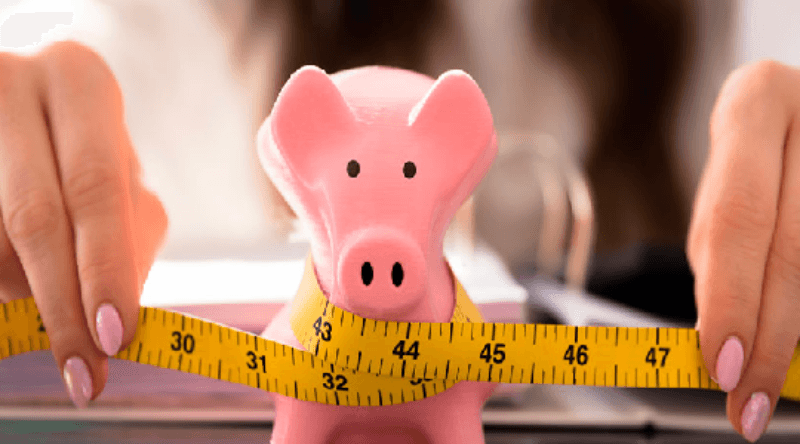
But making that leap is not easy and requires careful financial planning. Before quitting your job and embarking on the adventure of entrepreneurship, it's important to prepare yourself financially to face the challenges of running your own business.
In this article we offer you some tips to prepare yourself financially and make sure you have a solid foundation before you take the big leap.
Understand your personal finances
Before you take the leap into entrepreneurship, it's important to understand your current financial situation. This includes knowing your income, expenses, debts and savings.
To start, make a detailed list of your monthly income. Include your salary, extra income, rent or any other source of income. Next, make a list of all your monthly expenses. Here it is important to be honest with yourself and keep a detailed record of every expense, from rent or mortgage to small expenses like food and gas.
Once you've calculated your monthly income and expenses, compare both lists and determine if you're spending more than you earn or if you're saving something each month. If you are spending more than you earn, it's time to cut back on some non-essential expenses and adjust your budget so you can save.
It's also important to know your debts and how they affect your financial situation. Make a detailed list of all your debts and their interest. Establish a plan to pay them off gradually so you can get out of the debt cycle.
Finally, don't forget to include in your budget an amount earmarked for savings. Saving will help you create a fund for emergencies or even to finance your future business.
Save money for your business
One of the keys to success as an entrepreneur is good financial management. One way to prepare yourself to take the leap is to save money for your business.
To do this, you can start by analyzing your expenses and see where you can reduce them. You can renegotiate your service or supplier contracts, opt for cheaper tools or even work from home to reduce fixed costs.
Another option is to seek financing through personal or small business loans. However, it is important to carefully evaluate the conditions and make sure you can afford the payments without affecting your financial stability.
In addition, you should be disciplined in your saving habits and avoid unnecessary expenses. Every peso you save brings you one step closer to financial independence and success as an entrepreneur.
Create a realistic budget
Once you have defined your business plan and the capital you will need to start your venture, it is important to create a realistic budget. To do this, you must identify all the expenses you will have and establish priorities.
It is advisable to make a list of all monthly expenses, such as rent for a store, employee salaries, production costs and overhead. You should also consider variable expenses, such as advertising and marketing.
Once you have a complete list of your expenses, it is important to calculate your potential income. This will let you know how much money you need to cover your monthly expenses and give you an idea of how long it will take to recoup your initial investment.
It is important to be realistic when creating your budget. Don't rely on optimistic assumptions about sales or the growth of your business. Instead, consider different scenarios and budget conservatively.
Remember to constantly review your budget and adjust it if necessary. There will always be unforeseen events and new challenges along the way, so be prepared to adapt and make wise financial decisions.
Reduce your personal expenses
Before taking the leap into entrepreneurship, it is important to review your personal finances and identify expenses you can reduce. When you become an entrepreneur, your income is likely to be small or irregular for the first few months or even years. Therefore, it is recommended that you reduce your expenses as much as possible to have a financial cushion.
One way to reduce your expenses is to eliminate those that are not necessary. You can review your bills and see which services you really use and those that you can do without. You can also save on electricity, water and gas by adopting efficient consumption habits.
Another way to reduce your expenses is to look for more economical alternatives in your daily life. You can use public transportation instead of your private car, buy food in bulk instead of packaged food, cook instead of eating out, among other options.
Reducing your personal expenses will not only help you to have a financial cushion to undertake, but also to adopt healthier and more sustainable habits for the environment.
Paying off your debts
Before making the decision to become an entrepreneur, it is critical that you have a plan in place to pay off all of your outstanding debts. This will allow you to have greater financial freedom and be more focused on growing your business.
To do this, it is advisable to make a detailed list of all your debts, including the amount you owe and the interest rate. Then, prioritize those with higher rates and establish a plan to pay them off in order.
If you need help managing your debts, you may consider working with a financial advisor or a company that specializes in debt consolidation.
Consider alternative sources of financing
Once you have assessed your financial situation and established a plan to save and reduce your expenses, it is important to consider other options for obtaining financing for your business.
One option is to look for angel investors or venture capitalists who may be interested in investing money in your business in exchange for a share of future profits.
Another option is crowdfunding, which involves attracting numerous people through online platforms to invest small amounts of money in your business. This can be a good option if you have an innovative project or an attractive idea that can generate interest in the community.
You can also consider government loans or grant programs aimed at supporting entrepreneurs and small businesses. Research the options available in your country and region.
In any case, be sure to carefully evaluate all options before making a decision and seek financial advice if necessary.
Seek professional financial advice
Before embarking on any business venture, it is important to have the guidance of a financial expert. A financial advisor can help you understand the various investment options, design a sound financial plan and minimize financial risks.
In addition, a financial advisor can help you prepare for start-up expenses, manage your personal finances during the transition from employee to entrepreneur, and establish a proper perspective on your long-term financial goals.
It is important to look for a financial advisor who has experience in the type of business you are considering starting and has good references. It is also important to establish good communication with your advisor and make sure you understand all the recommendations he or she makes.
Remember that making informed financial decisions is critical to the success of your business. Do not hesitate to seek the professional help you need to do so.






